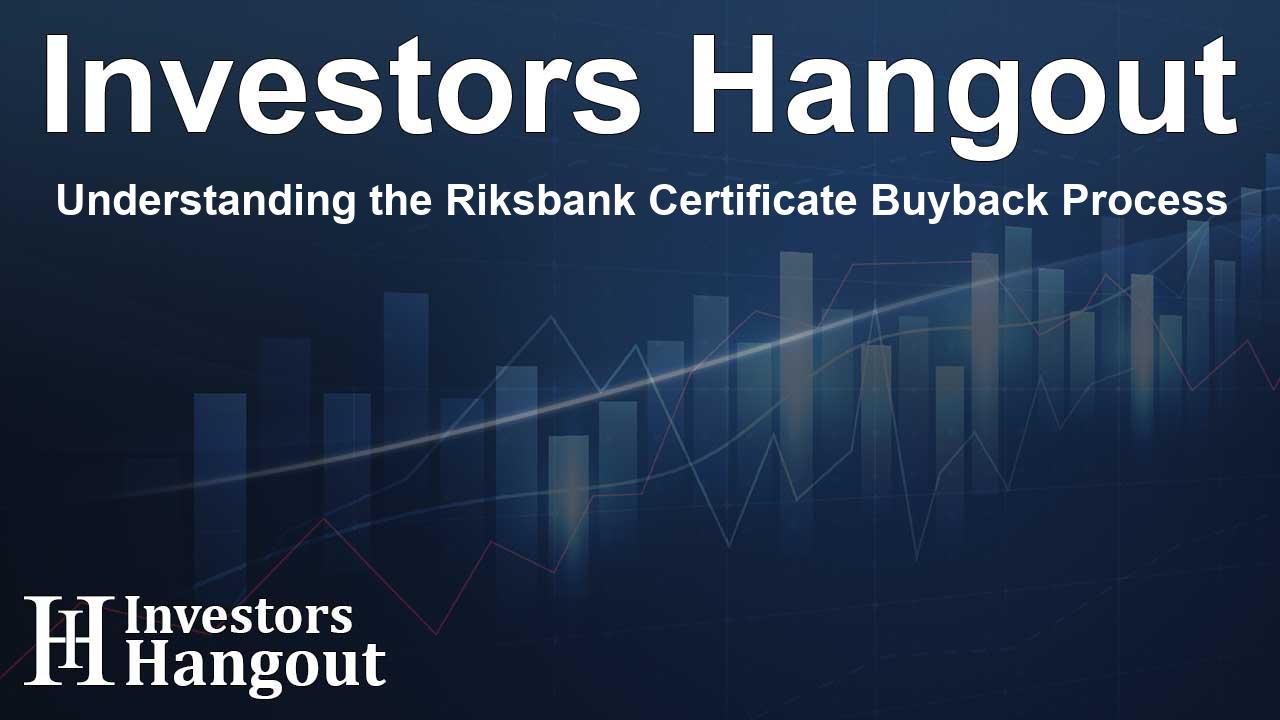Understanding the Riksbank Certificate Buyback Process

Insights into the Riksbank Certificate Buyback
The Riksbank has initiated a buyback of its certificates, an important step in its monetary policy framework. These actions often influence various aspects of the financial market, and understanding their implications is crucial for investors and stakeholders alike.
Details of the Certificate Buyback
The buyback encompasses certificates with a significant maturity date, indicating the Riksbank's strategic maneuvering in the financial landscape. The maturity date for these certificates is set to ensure a timely response to fluctuating economic conditions.
Fixed Rate Overview
At the core of this buyback is a fixed rate that includes an added premium. The current fixed rate is observed at 2.10%, which takes into account the policy rate supplemented with an additional 10 basis points. This configuration provides stability and predictability for investors involved in this buyback process.
Volume of Certificates
The buyback operation has a notable volume of 25 billion, reflecting the Riksbank's commitment to managing liquidity and optimizing monetary policy effectiveness. This substantial volume indicates a proactive approach to shaping the economic environment and fostering stability across financial markets.
Trade and Settlement Dates
Understanding key dates in this process is vital for participants in the financial market. The trade day is crucial as it marks when the buyback agreement is established, while the settlement day is when the actual transfer of funds occurs, solidifying the transaction. For this buyback, the specified trade day and settlement day highlight the importance of timely execution in the buyback process.
Implications for Financial Markets
The Riksbank's buyback of certificates not only influences immediate liquidity but can also signal broader economic conditions. Such actions can affect interest rates, investor confidence, and ultimately, the economy. Investors should closely monitor these operations as they reflect the central bank's assessment of current economic situations and expectations for future developments.
Frequently Asked Questions
What is a Riksbank certificate?
A Riksbank certificate is a short-term debt security issued by the central bank, primarily utilized for monetary policy purposes.
Why is the buyback significant?
The buyback is significant as it indicates the central bank's intention to control liquidity and manage inflation effectively.
How does the fixed rate affect investors?
The fixed rate provides stability, allowing investors to predict returns with confidence based on the current rate of 2.10%.
What do the trade and settlement days represent?
The trade day marks the agreement on the transaction, while the settlement day is when the actual exchange of money for certificates occurs.
How does this buyback impact the economy?
This buyback can influence interest rates, investment decisions, and overall economic confidence, illustrating the Riksbank's active role in economic management.
About The Author
Contact Dylan Bailey privately here. Or send an email with ATTN: Dylan Bailey as the subject to contact@investorshangout.com.
About Investors Hangout
Investors Hangout is a leading online stock forum for financial discussion and learning, offering a wide range of free tools and resources. It draws in traders of all levels, who exchange market knowledge, investigate trading tactics, and keep an eye on industry developments in real time. Featuring financial articles, stock message boards, quotes, charts, company profiles, and live news updates. Through cooperative learning and a wealth of informational resources, it helps users from novices creating their first portfolios to experts honing their techniques. Join Investors Hangout today: https://investorshangout.com/
The content of this article is based on factual, publicly available information and does not represent legal, financial, or investment advice. Investors Hangout does not offer financial advice, and the author is not a licensed financial advisor. Consult a qualified advisor before making any financial or investment decisions based on this article. This article should not be considered advice to purchase, sell, or hold any securities or other investments. If any of the material provided here is inaccurate, please contact us for corrections.
